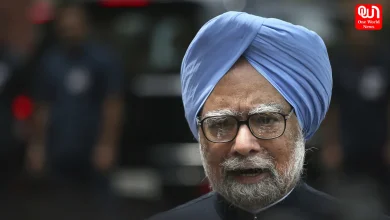Gita Press Rejects Monetary Gandhi Prize, Emphasizes Spirituality
Gita Press rejects the monetary aspect of the Gandhi Peace Prize, prioritizing spiritual values over financial gain.
Gita Press Rejects Monetary Form: Upholding Spiritual Values, Gita Press Declines Gandhi Peace Prize’s Financial Aspect
Gita Press, a renowned publishing house known for its religious texts, has recently made headlines by refusing to accept the prestigious Gandhi Peace Prize in monetary form. The decision reflects their commitment to upholding the spiritual and cultural significance of the award. We delve into the reasons behind why Gita Press rejects the monetary Gandhi Prize, and the underlying principles that shape their stance.
The ministry of culture recently revealed that Gita Press, Gorakhpur, would be awarded the prestigious Gandhi Peace Prize for 2021. The award includes a cash prize of ₹1 crore, a citation, a plaque, and a traditional handicraft or handloom item. Gita Press is being recognized for its remarkable efforts in promoting social, economic, and political transformation through non-violent and Gandhian approaches. Previous recipients of this esteemed award include renowned organizations like the Indian Space Research Organisation and Ramakrishna Mission.
Gita Press Rejects ₹1 cr Cash Award for Gandhi Peace Prizehttps://t.co/uyA6DI0XlB
Download Economic Times App to stay updated with Business News – https://t.co/buZYtZQGKn pic.twitter.com/5snG2JLySH
— SanthanamVaidya (@sanvai) June 20, 2023
The Gandhi Peace Prize:
The Gandhi Peace Prize, established by the Indian government in 1995, is bestowed upon individuals or institutions that have made exceptional contributions to social, economic, and political transformation, echoing the ideals of Mahatma Gandhi. The prize, which carries a substantial monetary component, aims to recognize and honor the efforts of those dedicated to peace, non-violence, and community development.
Gita Press’s Refusal:
Gita Press, an institution revered for its dedication to the dissemination of religious and spiritual literature, declined the Gandhi Peace Prize in monetary form. They firmly believe that the award’s true value lies in the principles it represents rather than the monetary aspect. Gita Press places emphasis on spiritual enrichment, moral values, and the dissemination of knowledge as the true essence of their work. By declining the monetary component, they seek to uphold the integrity of their mission and reinforce the importance of spiritual wealth over material possessions.
Preserving Spiritual Integrity:
Gita Press’s decision to decline the monetary aspect of the Gandhi Peace Prize aligns with their commitment to preserving the spiritual integrity of their work. They emphasize the need for individuals and institutions to prioritize values, ethics, and service to humanity over financial gain. By rejecting the monetary form, Gita Press aims to uphold the timeless teachings of religious scriptures and their mission of spreading spiritual enlightenment.
Read more:- “Women Vigilantes Challenge Manipur Security Forces”
Breaking news
Gita Press rejects Gandhi Peace Prize and Rightly so… https://t.co/SGw5PrcX7W— Arvind Maheshwari 🇮🇳 (@arvind_Navy) June 19, 2023
Read more:- Amit Shah asks groups in Manipur to keep peace for 15 days, held talks
Recognizing Symbolic Worth:
Through their refusal, Gita Press highlights the symbolic worth of the Gandhi Peace Prize. They acknowledge the significance of the honor itself and the recognition it brings to their contributions. By declining the monetary component, they reaffirm their belief that material possessions should not overshadow the value of ideals, wisdom, and the pursuit of spiritual growth.
Gita Press rejects Rs. 1 Crore cash award amid Gandhi Peace Prize controversy.#GitaPress #GitapressGorakhpur #GandhiPeacePrize @GitaPress @myogiadityanath @myogioffice pic.twitter.com/SuukeNbFA1
— Zee Telugu News (@ZeeTeluguLive) June 19, 2023
Gita Press’s refusal to accept the Gandhi Peace Prize in monetary form demonstrates their unwavering commitment to preserving the spiritual and cultural values they hold dear. By emphasizing the importance of spiritual wealth and knowledge dissemination, they inspire individuals and institutions to prioritize ethics, service, and the pursuit of higher ideals. Their decision serves as a reminder that the true worth of recognition lies in its symbolic value, which can transcend material boundaries and leave a lasting impact on society.








